“Ecobricks”? Ask MSC Philippines
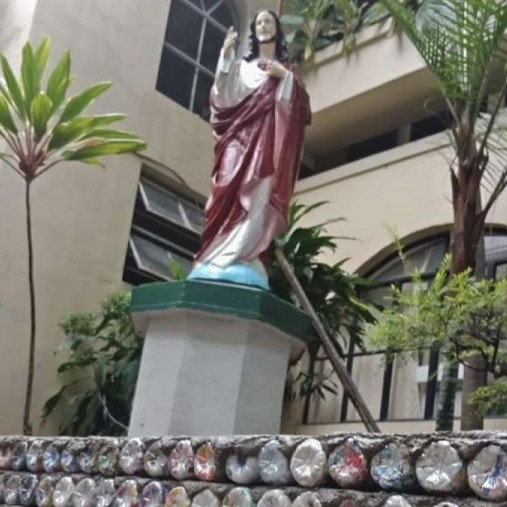
Plastic bottles stuffed with plastic, called "ecobricks," are visible everywhere at the seminary campus of the Missionaries of Sacred Heart, in Manila, Philippines, including in walls, planter boxes, garden fencing and altar decorations. (Courtesy of Missionaries of the Sacred Heart)
Rector of the seminary from 2018 to 2023, Espuerta, 53, for years led classes of seminarians in making the ecobricks.
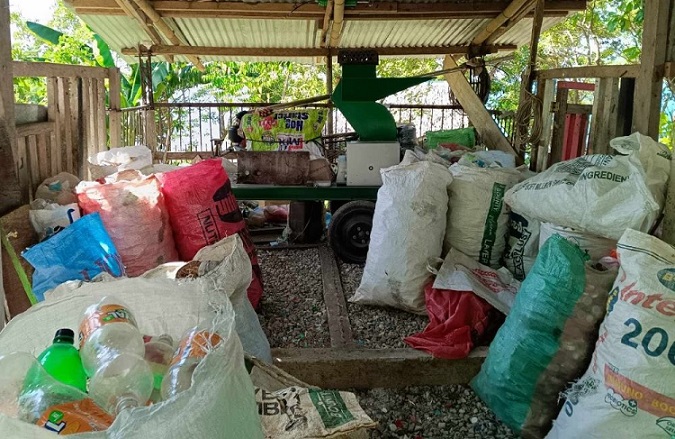
Each brick starts with an empty 1.5-liter plastic bottle, then other plastics are cut into smaller pieces and pressed into the bottle with a bamboo stick. All plastics are cleaned first and sometimes painted for a more artistic look. The process can be time-consuming, with a single brick sometimes taking as long as one day to make.
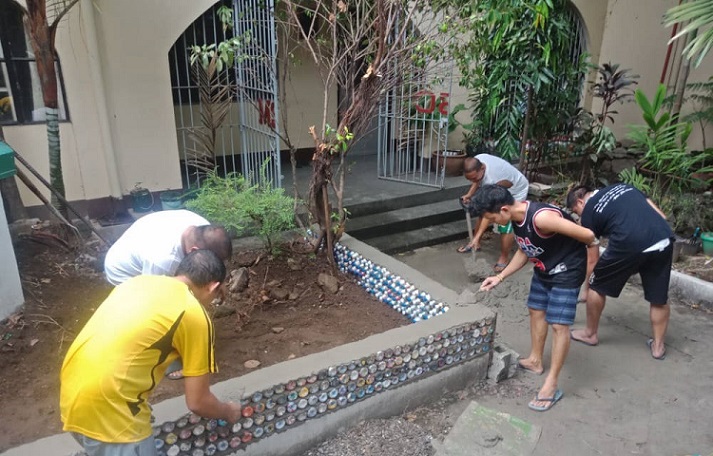
Missionaries of the Sacred Heart in Manila use discarded plastic to create ecobricks. Plastic bottles are stuffed with plastic pieces to be used as building materials. (Courtesy of Missionaries of the Sacred Heart)
The Missionaries often use finished ecobricks and cement to build planter boxes around trees, barrier fences for gardens, and the bases of outdoor concrete tables and chairs. Inside their church, they have formed stands for flowers in front of the altar as well as a manger for a nativity scene.
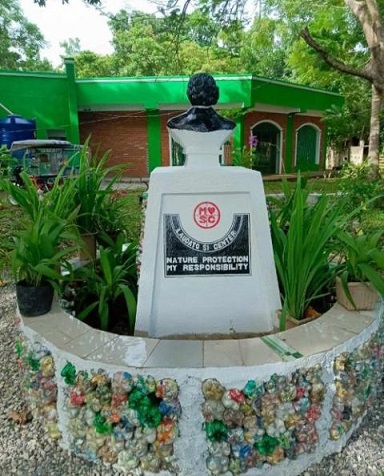
The Missionaries' ecobricks program is part of their efforts under the Sowing Hope for the Planet campaign promoting ecologically sustainable actions among congregations and orders of women and men religious around the world. The Philippine order is also enrolled in the Laudato Si' Action Platform, a Vatican initiative where Catholic institutions create seven-year sustainability plans in the spirit of Francis' 2015 encyclical "Laudato Si', on Care for Our Common Home."
"Human beings are not the only residents in the world. We also have our brother creatures, and we have to take care of them," Espuerta said. "Being responsible for the use of the plastic could be a good way to save our environment."
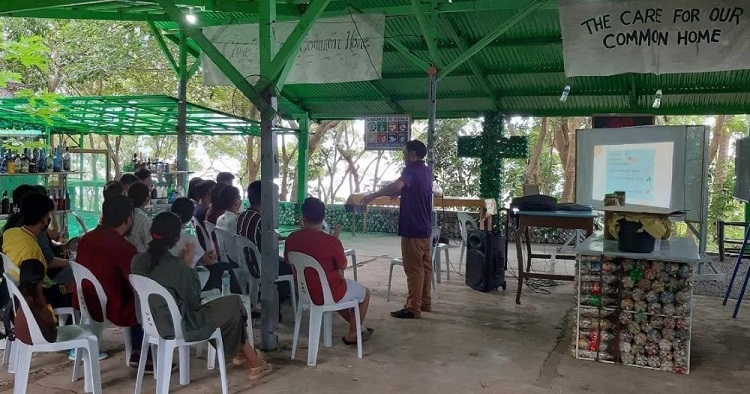
Priests with the Missionaries of the Sacred Heart lead trainings on how to construct ecobricks at their 15 parishes in the Philippines. The program is part of their order's creation care initiatives in the spirit of Pope Francis' encyclical "Laudato Si'." (Courtesy of Missionaries of the Sacred Heart)
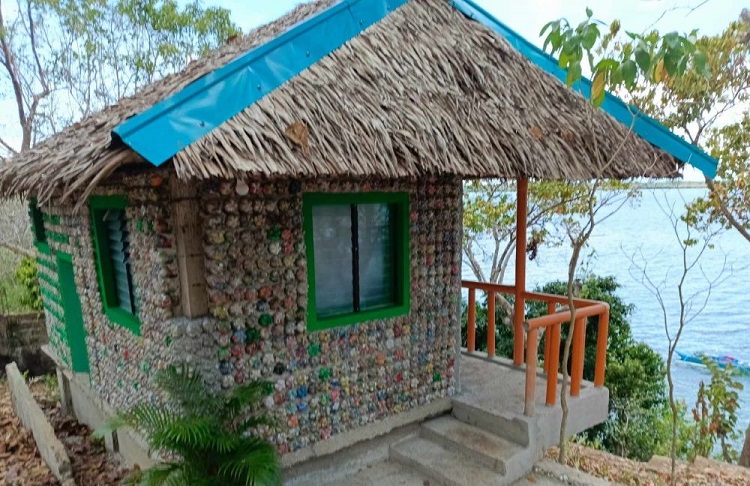
At Santo Nino Parish, Camotes Island in Cebu, Philippines, parishioners used ecobricks to construct a chapel. (Courtesy of Missionaries of the Sacred Heart)
And supporting this caring for the earth project, Superior General, Abzalon.
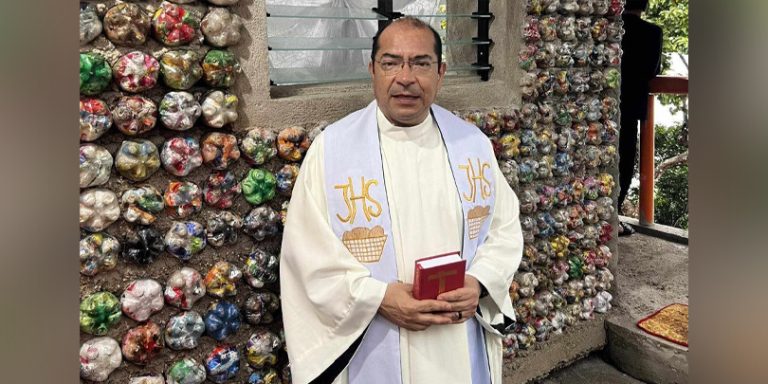
Further information
At the seminary for the Missionaries of the Sacred Heart in Manila, thousands of plastic bottles can be found everywhere – repurposed into “ecobricks” used for projects around the grounds. Source: NCR Online.
Beyond construction, the novel bottle-bricks serve as ubiquitous reminders of the prevalence of plastics in the world and the efforts to reject the throwaway culture that Pope Francis regularly condemns.
“We have to care for our common home. And plastics destroy creation,” said Missionary of the Sacred Heart Fr James Espuerta.
Rector of the seminary from 2018 to 2023, Fr Espuerta, 53, for years led classes of seminarians in making the ecobricks.
Each brick starts with an empty 1.5-litre plastic bottle, then other plastics are cut into smaller pieces and pressed into the bottle with a bamboo stick. All plastics are cleaned first and sometimes painted for a more artistic look. The process can be time-consuming, with a single brick sometimes taking as long as one day to make.
The Missionaries often use finished ecobricks and cement to build planter boxes around trees, barrier fences for gardens, and the bases of outdoor concrete tables and chairs. Inside their church, they have formed stands for flowers in front of the altar as well as a manger for a nativity scene.
The Missionaries’ ecobricks program is part of their efforts under the Sowing Hope for the Planet campaign promoting ecologically sustainable actions among congregations and orders of women and men religious around the world. The Philippine order is also enrolled in the Laudato Si’ Action Platform, a Vatican initiative where Catholic institutions create seven-year sustainability plans in the spirit of Francis’ 2015 encyclical Laudato Si’, on Care for Our Common Home.
“Human beings are not the only residents in the world. We also have our brother creatures, and we have to take care of them,” Fr Espuerta said. “Being responsible for the use of the plastic could be a good way to save our environment.”